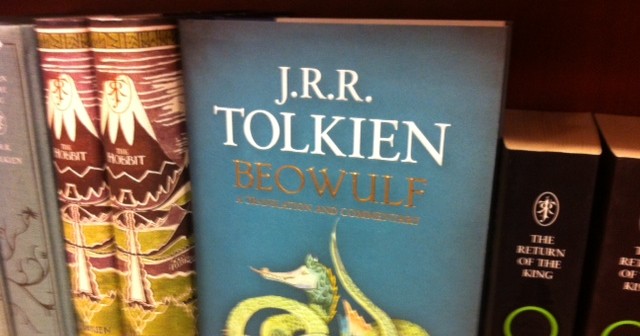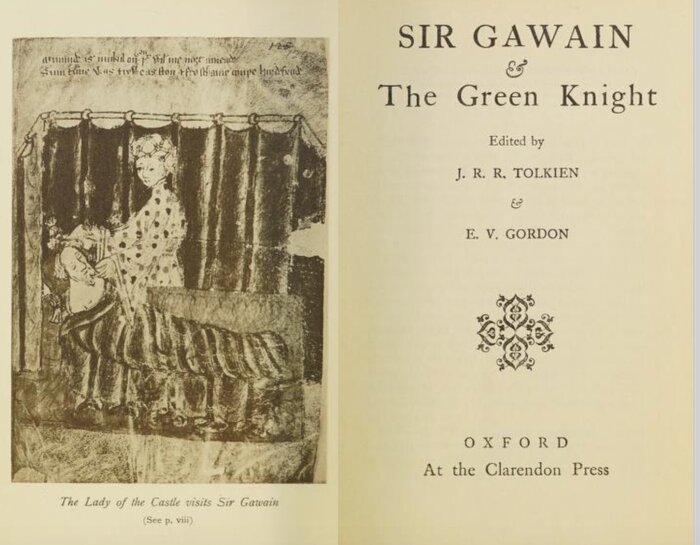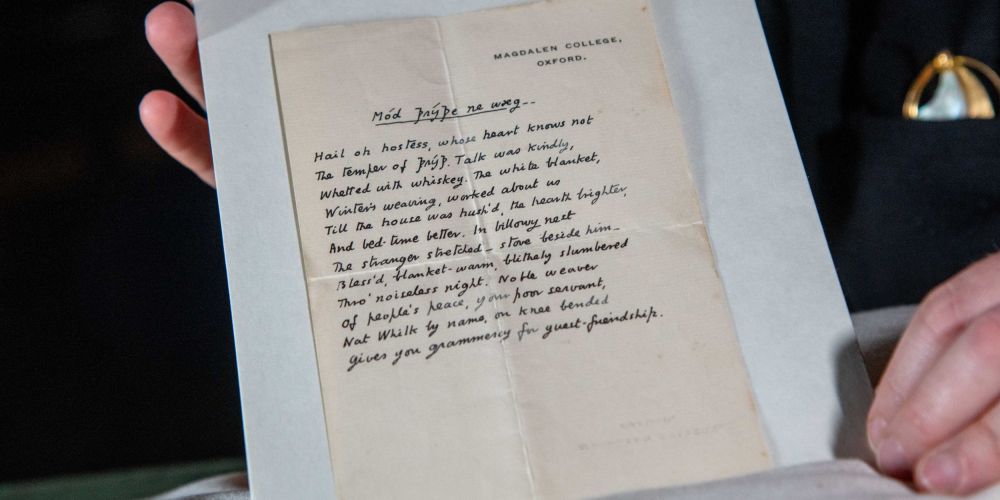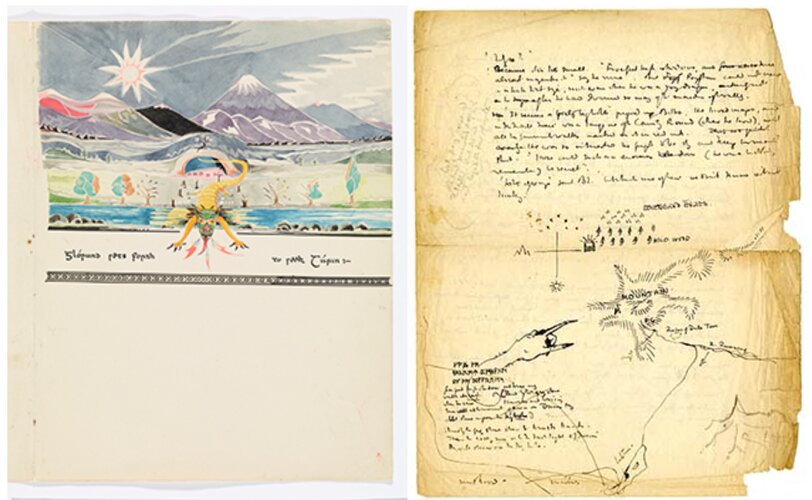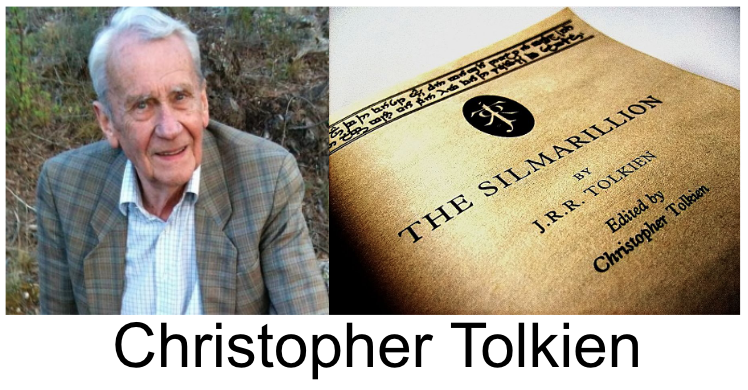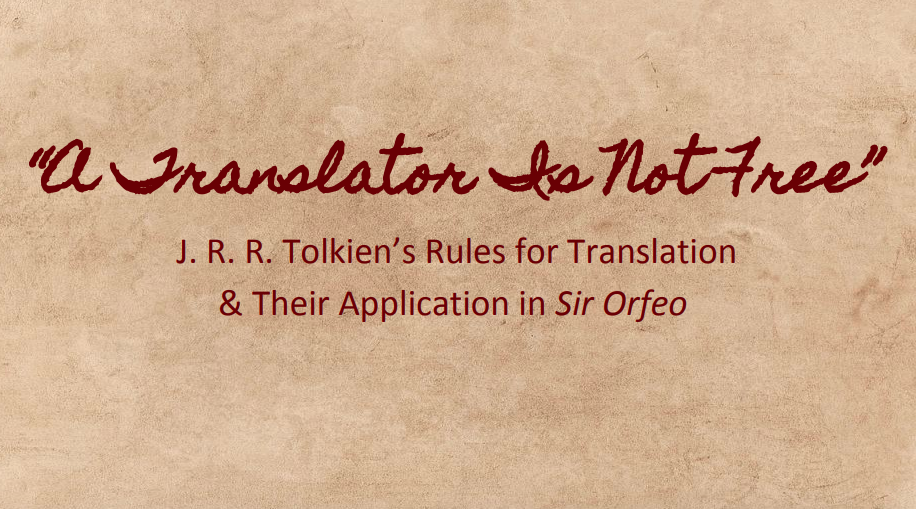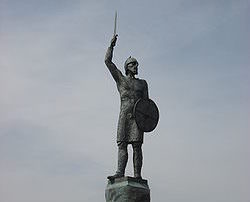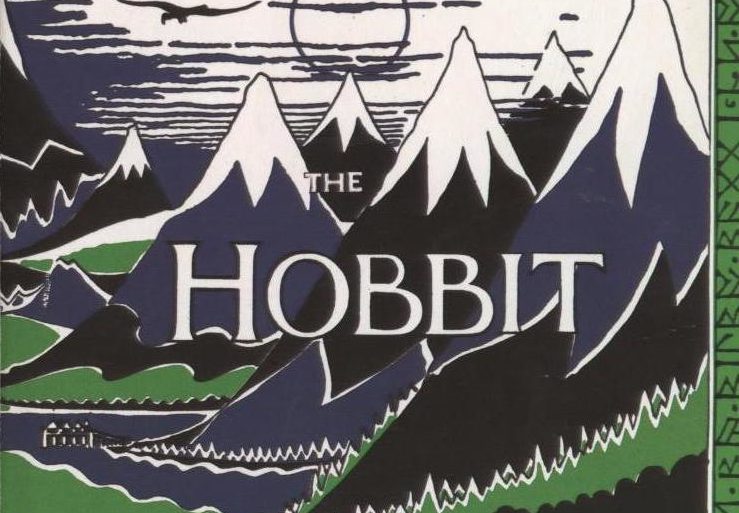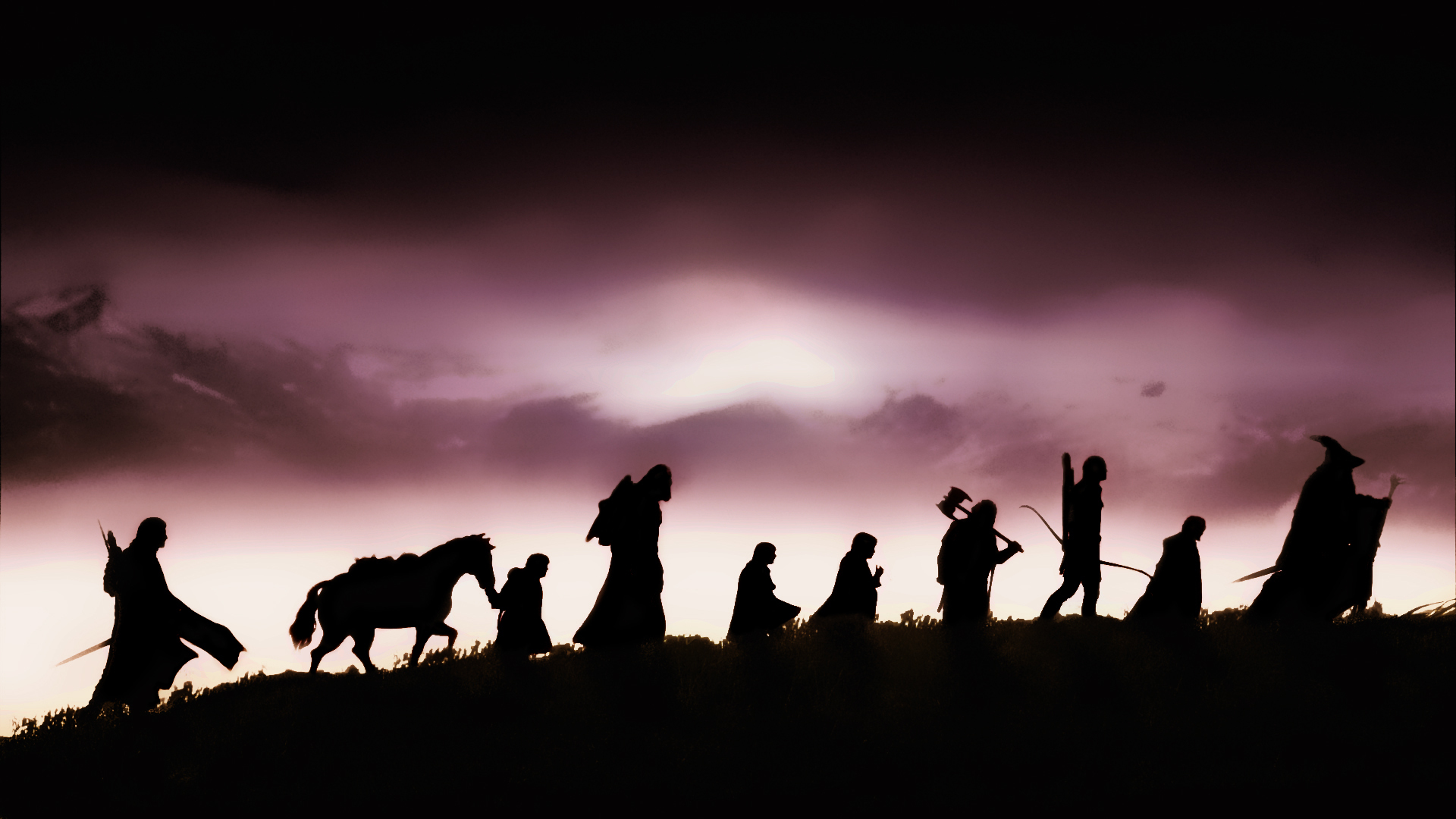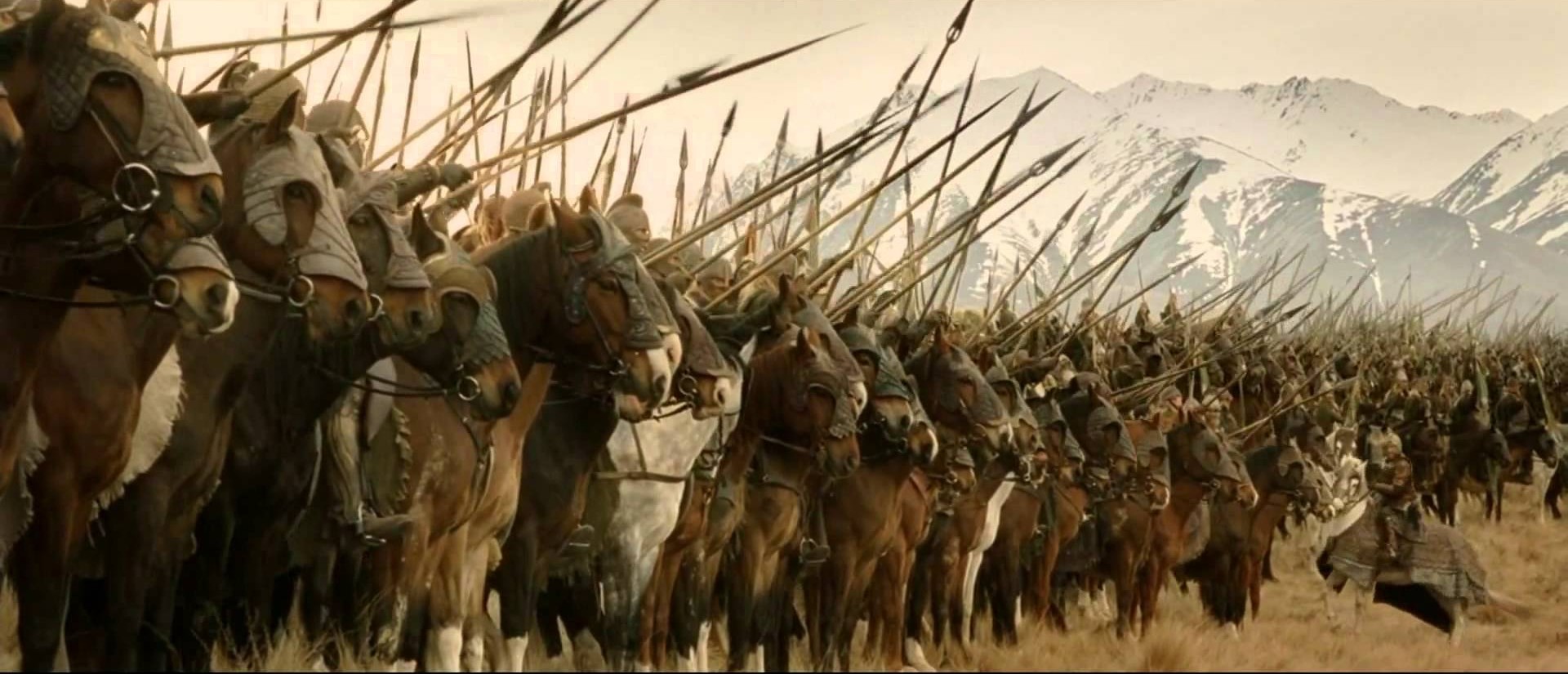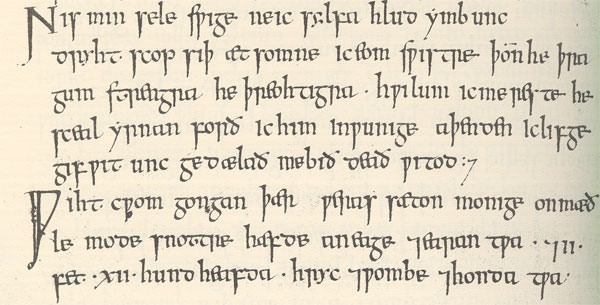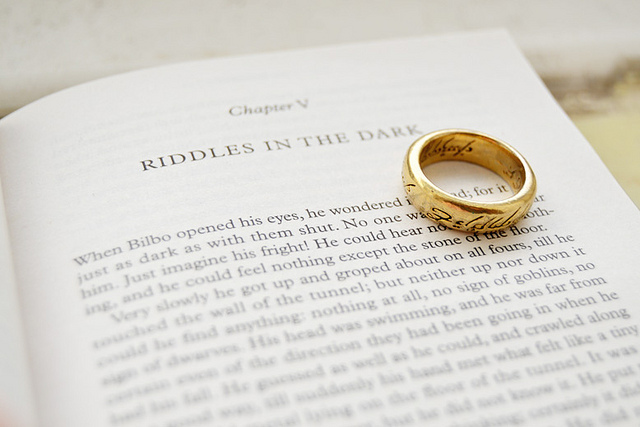Online Course: Tolkien and his Medieval Sources
Tolkien and his Medieval Sources is a six-week online course starting on February 6th, with live sessions each Thursday from 2:00 to 4:00pm EST.
Tracing the Echo of the Romantic Poet in Tolkien’s ‘Beowulf’
Both scholars and fans of J.R.R. Tolkien’s authorship generally agree that the medieval poem ‘Beowulf’ was essential for his studies in Old English literature and his creation of Middle-earth.
Celebrating 70 years since J.R.R. Tolkien’s Sir Gawain lecture in Glasgow (1953-2023)
On 15 April 1953, Tolkien delivered the W.P. Ker Memorial Lecture, on Sir Gawain and the Green Knight, to an audience of 300 at the University of Glasgow.
CS Lewis poem with medieval connections discovered in England
A forgotten poem by Chronicles of Narnia author CS Lewis reveals details of friendships between fantasy writers and medievalists at the University of Leeds.
Glaurung, Heir of Fáfnir: Tolkien’s Reading of Old Norse Dragon Myth
In Old Norse legend and literature, Fáfnir is the quintessential dragon, present in numerous sources through the ages, influencing all other narratives. This paper looks at that influence on Tolkien as he created the dragon Glaurung in his fictional world of Middle Earth.
What’s Good about The Rings of Power Season 1
The first season of The Lord of the Rings: The Rings of Power both moves away and stays close to Tolkien’s words in ways that make the series better.
J.R.R. Tolkien: The Art of the Manuscript – exhibition underway at Marquette University
Fans of the work of J.R.R. Tolkien can check out a new exhibition about his manuscripts, and you can see some of the highlights here.
Cursed blades and dark swords in myth and fantasy
Dark and cursed blades are found throughout popular culture and fantasy; join Dr Lillian Cespedes to explore their roots in history, mythology and why they have become so popular.
Teaching Tolkien’s Translations of Medieval Literature: Sir Gawain and the Green Knight, Sir Orfeo, and Pearl
J.R.R. Tolkien, the medievalist who became the father of modern fantasy literature, translated many poems out of Old English, Old Norse and Middle English into carefully versified modern English.
Christopher Tolkien passes away
Christopher Tolkien, the son and literary heir of J.R.R. Tolkien, has passed away at the age of 95.
Life, Fantasy, Sagas, and Whatnot: Some Thoughts on Tolkien the Movie
I felt both very thrilled and scared when I learned that they had made a Tolkien biopic.
My Preciousssss Quiz For Tolkien Fans
Are you Tolkien’s biggest fan? How many of these tough questions can you get right?
How Much Do You Know About J.R.R. Tolkien’s Invented Languages?
Epic adventures are only part of the appeal of J.R.R. Tolkien’s Middle Earth books. What really set Tolkien apart from other fantasy writers was his skill at crafting entire worlds—and at showing how important language is to history and identity. How much do you know about Tolkien’s linguistic world?
“A translator is not free”: J. R. R. Tolkien’s Guidelines for Translation and Their Application in Sir Orfeo
While bemoaning his struggles with translating the Middle English poem “Pearl,” Tolkien declared to his aunt, Jane Neave, that ‘a translator is not free”: but he neglected to delineate the specific rules by which he believed translators were shackled.
A Promise Made Is a Promise Kept: Oath-Breakers and Keepers in Tolkien’s Middle-earth
To fully understand the statements about the degree to which Tolkien’s specialisation influenced his works, it is useful to know what Anglo-Saxon warrior culture represents.
The Hobbit and Other Fiction by J. R. R. Tolkien: Their Roots in Medieval Heroic Literature and Language
The body of this study presents the results of a survey of certain major medieval works in English, Norse, Irish, Welsh, French, German, and Italian, particularly those alluded to in Tolkien’s published scholarship and those suggested as possible sources in reviews of Tolkien’s fiction
Why Tolkien’s Beowulf is an ‘amazing book but a terrible translation’
In the spring of 2014 a translation of Beowulf by J.R.R. Tolkien was published. Last week, Andy Orchard, one of the leading scholars of Old English, offered his thoughts about the book and revealed that he will be writing his own translation of the famous medieval poem.
Teaching Tolkien’s Translations of Medieval Literature: Sir Gawain and the Green Knight, Sir Orfeo and Pearl
J.R.R. Tolkien, the medievalist who became the father of modern fantasy literature, translated many poems out of Old English, Old Norse and Middle English into carefully versified modern English
Simply Walking into Mordor: How Much Lembas Would The Fellowship Need?
The Fellowship of the Ring were supposed to travel from Imraldis to the forges of Mt. Doom in order to destroy the One Ring of Sauron.
Tolkien and the Viking Heritage
Much has already been written about the influence of Norse mythology on The Lord of the Rings. Less research has so far been done about how other aspects of the culture and history of the Vikings and Anglo-Saxons influenced Tolkien’s writing.
Riddles in the Dark Ages
Latin riddles depended on knowledge of a specific subject in order to be deciphered, while English riddles were often about common things like the weather.
The Anglo-Saxon War-Culture and The Lord of the Rings: Legacy and Reappraisal
The literature of war in English claims its origin from the Homeric epics, and the medieval accounts of chivalry and the crusades.
J.R.R. Tolkien and the morality of monstrosity
J.R.R. Tolkien’s Middle-earth is Beowulf for the twentieth century.
Which Member Of The Fellowship Are You?
Happy twelvety-third birthday to J.R.R. Tolkien! Let’s go back to the Lord of the Rings and find out which of the brave companions are you?
Can you answer the Riddles of The Hobbit?
One of the most famous scenes in the story of The Hobbit is when Bilbo meets up with Gollum in the caves under the Misty Mountains. The two engage in a game of riddles, and Bilbo is able to escape with his life and a magical ring. Here are eight of the riddles they told each other – can you solve them?

